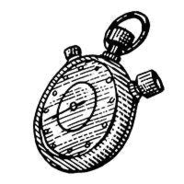Research published in the April issue of the journal Cognition shows that the colorful brain images created by functional magnetic resonance imaging can give a perceived credibility to an otherwise flawed science news story.

Wissenschaft & Technik
Scientific American Podcast: 60-Second Mind Folgen
Tune in every Saturday for quick commentary on the latest news in behavior and brain research—it'll just take a minute
Folgen von Scientific American Podcast: 60-Second Mind
334 Folgen
-
Folge vom 07.04.2008Brain Images Make Inaccurate Science News Trustworthy
-
Folge vom 28.03.2008Learn to Be KindNew research from the University of Wisconsin-Madison finds that we can acquire a greater capacity for compassion through meditation training, in much the same way as athletes or musicians train to improve their skill.
-
Folge vom 14.03.2008Mind the Alzheimer's SwitchNeuroscientists recently made a startling discovery--young brains may experience memory loss due to the same mechanism responsible for Alzheimer's.
-
Folge vom 03.03.2008Experimenting With DrugsWhile at Stanford in the mid-1960s, One Flew Over the Cuckoo's Nest author Ken Kesey started adding a peculiar ingredient to his homemade venison stew--LSD. Now, more than forty years later, the psychedelic pioneer's beloved drug is giving neuroscientists new clues about what causes schizophrenic psychosis.
